
| NYWI HOME PAGE | VISITING WRITERS & EVENTS INDEX | VIDEO ARCHIVES |
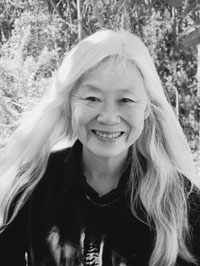 |
NYS Writers Institute Reading - October 26, 2004
4:15 p.m. Informal Seminar | Assembly Hall, Campus Center
8:00 p.m. Reading | Recital Hall, PAC, Uptown Campus
PROFILE
Maxine Hong Kingston is widely regarded as one of the major authors of contemporary American literature. Her books, "The Woman Warrior: Memoirs of a Girlhood Among Ghosts" (1976), and "China Men" (1980), are classics of the new American canon, and are praised by critics for a magical variety of prose that seamlessly blends myth and fact in its exploration of Chinese-American identity.
Kingston's long-awaited new book is "The Fifth Book of Peace" (2003), which grew out of the ashes of a novel-in-progress that was destroyed when a brush fire consumed her Oakland home in 1991. The new book serves a variety of functions: It retells the story of the lost novel ("The Fourth Book of Peace") which was about a Chinese-American poet who evades the Vietnam draft; It recounts Kingston's experiences amid the worst wildfire in California history; It relates her research on the "Three Lost Books of Peace," Chinese works that, according to legend, contain the secrets of world peace; And, finally, it calls for the creation of a new literature of peace.
"San Diego Union-Tribune" reviewer Julie Brickman wrote that Kingston, "has gathered a community of the lost, the disempowered, the people who never get to write alternative histories, and gifted them the fierce power of her voice. The narration of 'The Fifth Book of Peace' is at once individual and communal, a form uniquely suited to the quest for peace: a chorale of warriors for peace."
A longtime peace activist herself, Maxine Hong Kingston was recently arrested, along with fellow author Alice Walker, while protesting the Iraq war in front of the White House in observance of International Women's Day, March 7, 2003.
"The Woman Warrior" (1976), Kingston's memoir of growing up as the daughter of Chinese immigrants in Stockton, California, blends personal reminiscences with fabulous "talk stories" told by her mother, a trained midwife forced to work as a laundress and field hand to support her family. In 1976, Kingston's willingness to mix truth with fable was something utterly new in the nonfiction genre, and critics responded with awe. Writing in the "Washington Post Book World," William McPherson called the book, "a strange, sometimes savagely terrifying and, in the literal sense, wonderful story of growing up caught between two highly sophisticated and utterly alien cultures, both vivid, often menacing and equally mysterious." "The Woman Warrior" received the National Book Critics Circle Award and the "Mademoiselle" Magazine Award, and was named one of the top ten nonfiction books of the decade by "Time" magazine in 1979.
"China Men" (1980), the tale of three generations of Chinese men in America, also merges myth and truth to create a unique and imaginative work of nonfiction. Writing in the "New York Times," John Leonard called the book, "sheer magic: poetry, parable, nightmare, the terror and exhilaration of physical labor, the songs of survival, the voices of the dead, the feel of wood and blood, the smell of flowers and wounds. History meets sensuality." "China Men" received the National Book Award for nonfiction and the National Endowment for the Arts Writers' Award.
Maxine Hong Kingston has also published two volumes of essays, "Hawaii One Summer" (1987), an appreciation of the islands where Kingston lived and taught during the 1960s and '70s; and "To Be the Poet" (2002), a collection of meditations, written mostly in verse, about the advantages of poetry over prose. Maxine Hong Kingston is Chancellor's Distinguished Professor and Senior Lecturer for Creative Writing at the University of California, Berkeley.
Books By Maxine Hong Kingston
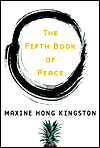
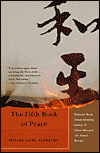
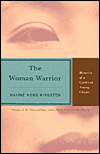
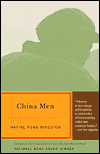
Previous Articles:
Writers Online Article